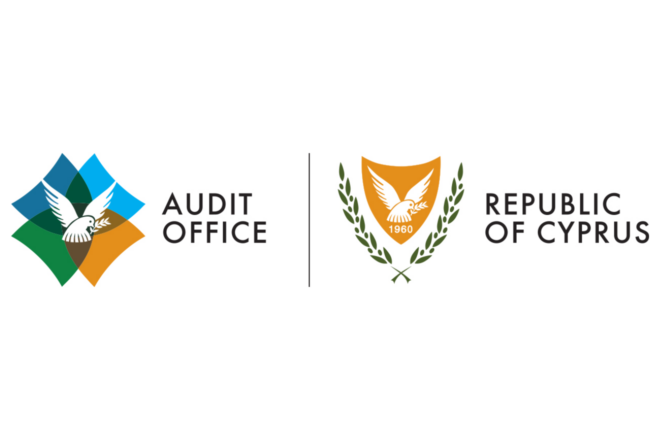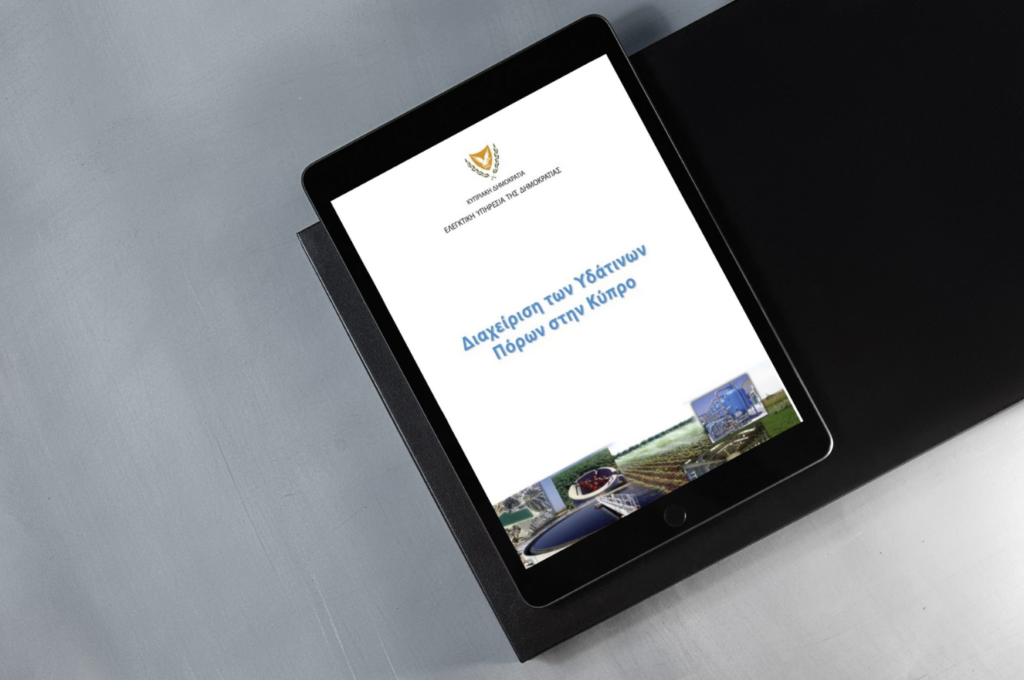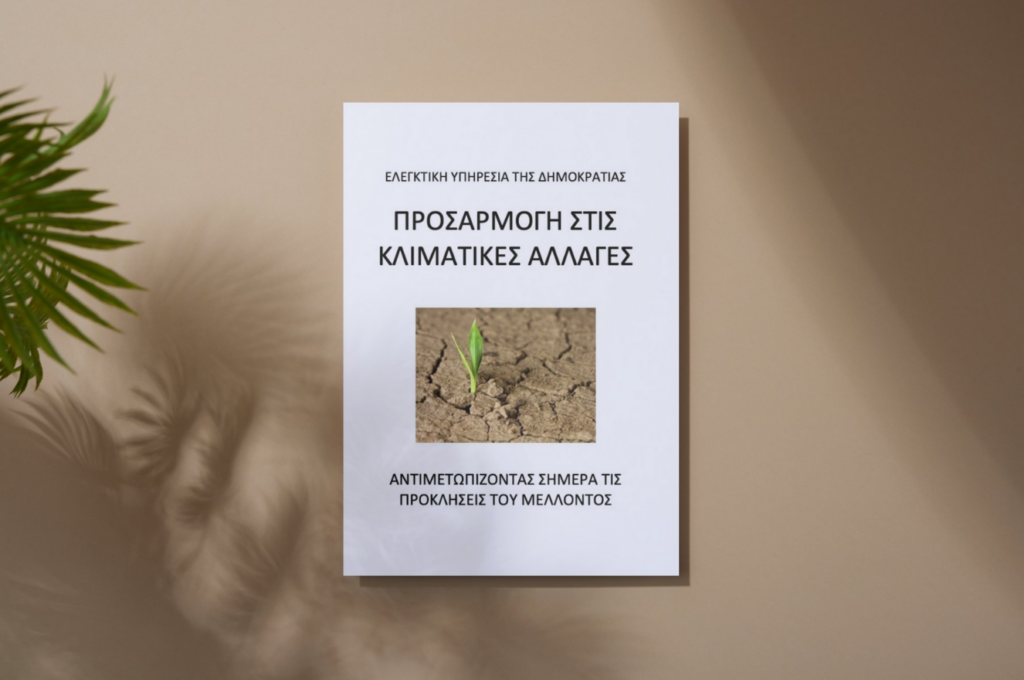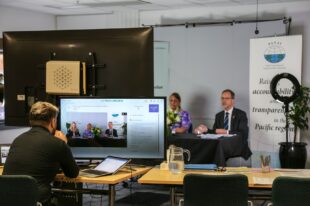Combatting Climate Change in Cyprus – Water Resource Management: A Performance Audit Carried Out in The Framework of the INTOSAI IDI’s Global Cooperative Audit of Climate Adaptations Actions

Author: Christina Meshiti, Audit Office of the Republic of Cyprus
Background
Cyprus has been facing water scarcity for years. The lack of natural surface water systems, such as lakes and rivers, has historically led to excessive exploitation of groundwater. Over-extraction from underground water bodies, in combination with reduced rainfall, as a result of climate change, have led to the current situation, where most of Cyprus’ aquifers are in poor condition. To address the need for sufficient water reserves, in the past, the government has constructed dams to collect rainwater that would otherwise flow into the sea and has developed infrastructure to transfer water to areas with less rainfall, with the Southern Conveyor Project being the most significant. However, the reduction in rainfall mentioned above impacts adversely on the quality of water collected in the dams.
In addition to the above, two unconventional sources of water are used to address the water shortage: desalinated seawater and recycled wastewater following tertiary treatment. Desalinated water is used to cover drinking water needs, whilst recycled water is used for the irrigation of agricultural crops and green areas, in accordance with good agricultural practices for the use of recycled water. Despite these efforts, water scarcity remains a major problem in Cyprus, with adverse effects on the environment, agriculture, development, and public health, which have been exacerbated in recent decades due to climate change.
Audit Objectives
The main objective of the audit, currently being carried out within the framework of the INTOSAI IDI’s Global Cooperative Audit of Climate Adaptation Actions, is to assess the current situation regarding water resource management in Cyprus and to ascertain whether the actions promoted by the Republic of Cyprus for water management are adaptive to the climate crisis and have been designed and implemented in an economic, efficient and effective way.
Audit Approach
We adopted a system-oriented approach to assess the resilience of the water management system to the impacts of climate change.
Audit Criteria
The audit criteria utilized for this audit are the European Union’s Water Framework Directive, which establishes the legal framework aimed at preventing and reducing pollution, promoting sustainable water use, protecting and improving the aquatic environment, and mitigating the effects of floods and droughts, along with other relevant European and national legislation.
Preliminary Study
The Audit Office of the Republic of Cyprus conducted a performance audit in 2016(1)(2) on water resource management in Cyprus to evaluate the national strategy and policies in the water sector, considering the economy, efficiency, and effectiveness of government entities and other statutory bodies involved in water management. In 2023-2024, we conducted a follow-up audit, with the main objective of presenting the current situation regarding water resource management in Cyprus and determining whether, eight years after the publication of our 2016 report, the relevant authorities have taken measures to adequately address the issues identified and improve the situation.

Additionally, in 2012, our Office published a report(3) on climate change adaptation in Cyprus, which included a special section on water resources.
Given the above, we have gathered information on the audit topic and the audited entity’s operations, built knowledge, and established the conditions for a successful audit. To enhance our understanding of the subject matter, we also conducted a Strengths, Weaknesses, Opportunities, and Threats (SWOT) analysis.

Methods/Audit Procedures Used to Gather Evidence
The audit team is using multiple methods to gather evidence, manage risk, and corroborate information from various sources, including interviews, document collection, and site visits. During the audit, we ensured that these approaches enabled the audit team to obtain evidence that addresses the audit objective and answers the audit questions. Our methodology was refined or adjusted as necessary throughout the audit process.
Preliminary Findings
Climatic factors such as rising temperatures, changes in rainfall patterns, increased evapotranspiration, and the higher frequency and duration of droughts have affected the availability and quality of natural water resources in Cyprus, despite the measures the country has taken to adapt to climate change.
A significant percentage of rainfall (86%-90%) in Cyprus continues to be lost through evaporation, and the country has exhibited a water deficit balance even after utilizing non-conventional water resources. Cyprus’ limited water resources are vulnerable to the impacts of climate change, with groundwater bodies under pressure due to excessive extraction, and seawater intrusion in coastal areas.
The sector most affected by this situation is agriculture. Irrigation needs are not always met, as water reserves (natural surface water and non-conventional sources) are prioritized for meeting the country’s drinking water needs, while groundwater bodies are strained by agricultural withdrawals. Therefore, there is an urgent need to shift towards drought-resistant and / or less water demanding crops.
Drinking water needs are largely covered by the operation of desalination plants, though at significant financial and environmental costs, as these operate on conventional fuel, therefore creating an increase in greenhouse gas (GHG) emissions.
The good condition of the aquifers is a key issue, in order to ensure water supply in mountainous areas, which, due to their elevation/altitude, are mostly dependent on acquirers, as it is very difficult to transfer, to those areas, water from desalination plants.
Another key issue to consider is the need to ensure the good condition of the dams’ and aquifers’ protection zones, as they significantly impact water quality.
Regarding strategic planning, delays were observed in the preparation and/or updating of specific strategic and management plans.
Conclusion
Our preliminary findings highlight the urgency of implementing adaptive measures, including promoting drought-resistant crops, improving aquifer and dam protection zones, and expediting the development of comprehensive water management plans. These steps are essential for securing the availability and quality of water resources, mitigating the environmental and economic costs associated with current practices and building resilience against the ongoing and future impacts of climate change.
Moving forward, it is critical for authorities to address identified gaps and delays in strategic planning and to prioritize actions that balance economic, environmental, and social considerations.





